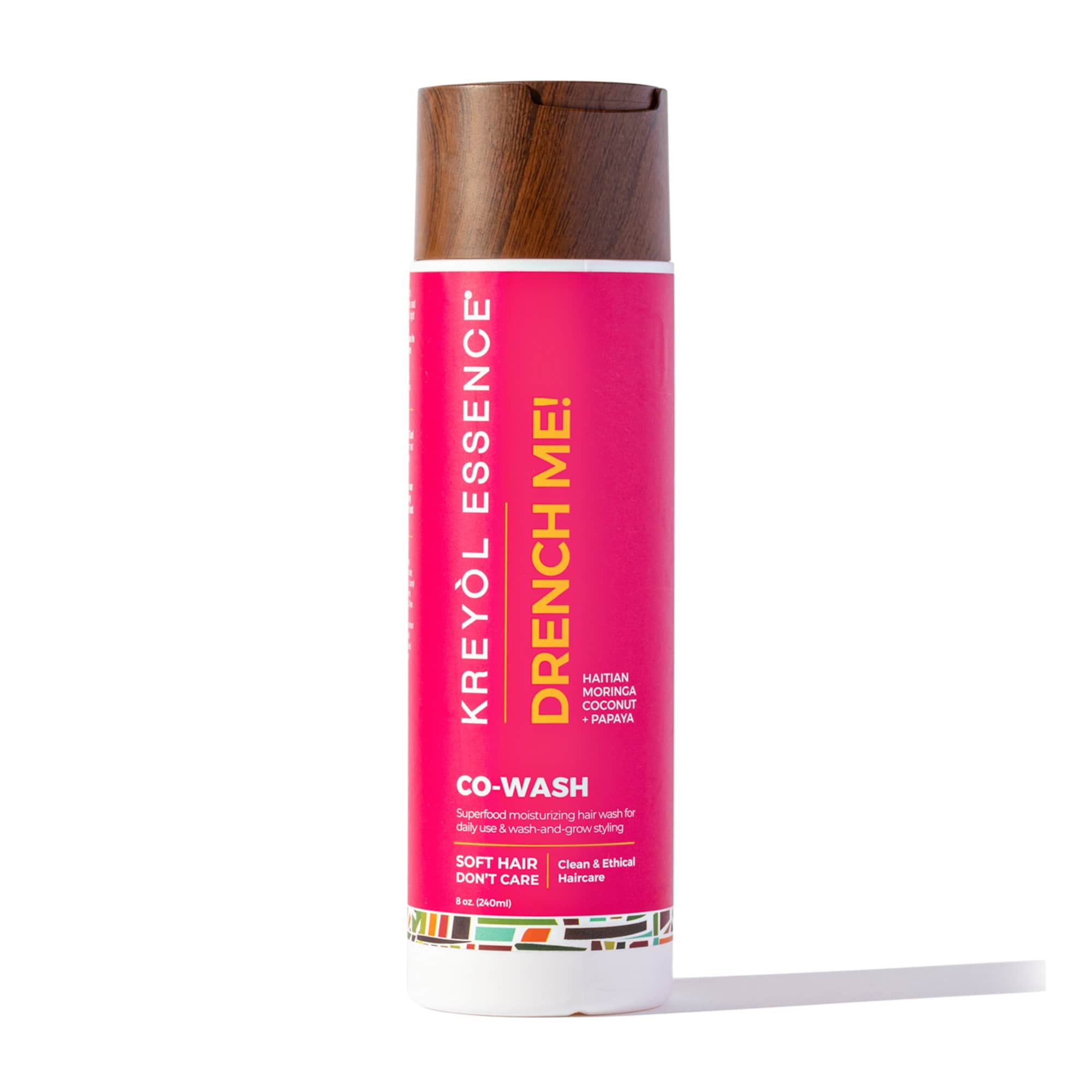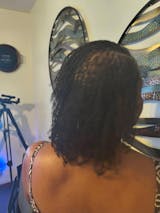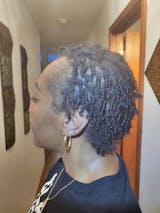Founders Corner
Clean Beauty Is A Rich, White Club That Hasn’t Let Me In. Here’s How It Can Make Real Change.

In 2016, Stephane—my life and business partner—called me to tell me about two new stores he found that he strongly believed our brand Kreyol Essence belonged in. We were new to the business of beauty and were trying to figure out where our natural, elevated, socially-conscious products should live. In our community, there were only a few places everyone wanted to see us: Target, Walmart, Sally Beauty and other beauty supply stores. I mean, where else do you ever see brands by Black founders?
Stephane had dreams. We had just rebranded our packaging with a bespoke wood top that was custom-made and nowhere to be found. We upgraded to a recyclable glass bottle to protect the oil and a sleek clear label we selected that could only be printed by a few printers since it required special machinery. How did he convince me we needed to do all this for one bottle of Haitian castor oil? He asked me, didn’t our community deserve better treatment and an opportunity to experience what white women who walk into the stores did every day?

He reminded me of my personal struggle to find a quality salon that didn’t quiver when they saw my hair, healthy ingredients in a store that had bright lighting and didn’t put me in a corner at the bottom shelf, and a self-care experience that told me I mattered. When my corporate job sent my team to the city, where appearances mattered as we were raising money, my colleagues could find places to groom, and I mostly ended up in my hotel room working on my concoctions to look presentable.
Stephane walked into Credo in 2016 and shared samples of our products with the staff. They loved it! He followed up, and we never heard anything from them. In 2017, I was accepted into the Sephora Accelerate program and was designated the future of beauty. I reached out to Credo, and we received the, “We are sorry, your products are not a fit for us at this time.” That’s OK. As an entrepreneur, it hurts, but we hear no all the time. We lick our wounds and tell ourselves that just means not yet. Four of my other Sephora sisters were at Credo, so I reached out for more guidance.
“Going into clean beauty was not about the money. It would not represent a large portion of our revenue. It was about racial equity.”
In 2018, our business had grown and so had our tribe. We landed a national account at Whole Foods, the OG clean beauty and socially-conscious retailer. I was on a television shopping network and, in addition to our tribe filled with kinky curly hair and melanin, white women were connecting with our social mission and our signature ingredient Haitian castor oil to deal with their hair loss and skin challenges like eczema.
I didn’t forget that one of the goals Stephane and I established for the company was to ensure that Black and brown women could walk into a clean beauty store like Credo, The Detox Market, Follain, Goop and CAP Beauty to find products that work for them. With this proven traction and plenty of earned press and media, surely, we should be able to get in. I reached out to all of them and received no response or was denied.

In 2019, I noticed that there was a clean beauty panel happening at BeautyX Retail, and guess who was on the panel? Buyers from Whole Foods, The Detox Market, Follain and Credo. During the Q&A session, I asked all the buyers why there was nothing in their stores for textured hair. Given studies on harmful ingredients, I knew they had an opportunity to serve a new customer. After the session, I spoke to each buyer, and we even had great follow-up calls. Product was exchanged, and pricing was discussed. It seemed like progress was finally happening. Then, nothing.
In the meantime, discussions were underway with several retailers, including holy grail retailer Ulta. Ulta is now launching us in 1,300 doors and our partnership is going to allow us to have an impact on 30,000 families in Haiti, where we foster economic development through the farming and harvesting of castor beans, over the next five years. We are also going to elevate the experience for Black women and provide clean products that are fun and efficacious. It’s major for a brand to get into Ulta as the competition is fierce.
“Make sure you understand how being inclusive is good for business.”
Going into clean beauty was not about the money. It would not represent a large portion of our revenue. It was about racial equity. How could the leaders of the clean beauty movement be bold enough to ban ingredients and fight over percentages of phenoxyethanol, but be noncommittal about taking a bold stance on Black women that are marketed products with same ingredients they are working to ban? Don’t our lives matter? The clean beauty retailers reside in Black and urban communities such as Brooklyn, where I was born, and Boston, where Stephane is from. Somehow, they missed research on products geared towards women of color being more toxic then products geared toward their white counterparts?
Honestly, I am disappointed in the clean beauty community. From A Night For Green Beauty to Goop, so much more can be done to provide quality products for a group that outspends their white counterparts five to one in haircare. As a founder, I have something that my white colleagues do not often have: cultural fluency. I speak to the 4C hair customer that needs a product for her edges—Black girl magic talk—and the 50-year-old white woman with graying hair that is coarse and needs moisture to the 25-year-old blonde who over-bleached her hair and over-waxed her eyebrows and is panicking, and the mom suffering from postpartum hair and skin issues. I have a agriculture degree from Cornell University and started a supply chain in Haiti. Does that not make me as good as some of my favorite founders like Tata Harper and Indie Lee?

The only reason I can think of that Kreyol Essence has not been fully embraced by the clean beauty community is that, while inclusive, we have an overt focus on Black and brown communities that have been ignored. Black and brown women have not been celebrated, and it’s my job to celebrate her Black skin and kinky hair. Perhaps that made some uncomfortable. I do believe this neglect will change. Here are six recommendations the clean beauty segment should be mindful of as it embarks on an inclusivity journey:
- Please do not say you could not find any brands founded by Black entrepreneurs that are clean. A Google search or talking to Kristian Henderson at BLK + GRN illuminates that we are there. Be honest and say we can do better to find Black-owned clean beauty brands.
- Be proactive in reaching out to brands already part of the beauty community. Don’t give Black founders more work to do. You know how to scout the brands you want.
- Reflect on your internal bias, and make sure you understand how being inclusive is good for business. Clean beauty retailers incubate and support small brands, and should double down on fostering Black-owned brands. Not only is it the right thing to do morally, it’s the right thing to do for your business.
- If you notice your shelf, your panel and your staff are homogenous in 2020, you have a problem. Your staff of color are a great resource. Get advisors that are culturally competent and remember that brand founders of color, which have more barriers to climb, normally overperform. Those are the partners you want.
- Have a mix of products at masstige and prestige price points. You know this mix is needed if the true intention is to have the world switch to healthier products.
- Beauty has been traditionally for the white elite. Do not repeat history. Beauty founders should not have to mortgage their house to be in business with you. Those with million-dollar friends and family rounds can meet some of the requirements you have, but those who cannot need better terms. Reduce chargebacks, review margin requirements, promote women of color entrepreneurs on social and market them without excessive costs because they bring a new customer to you.










